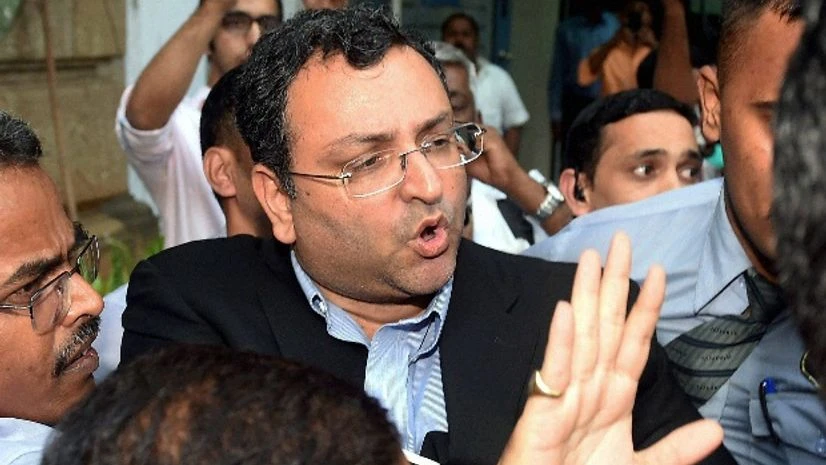The Tata camp is learnt to be readying ground for the removal of Cyrus Mistry as chairman from the boards of various listed companies belonging to the group. It is trying to garner support from key institutional investors to ensure a smooth sailing, if the issue comes up for shareholder voting.
According to sources, Tata group executives have already met key foreign and domestic institutional investors, who own significant stake in the companies, explaining the current state of affairs and the need for their support in the near future.
“Key executives from the Tata camp have had preliminary meetings with institutional shareholders. They have made a case for removal of Mistry from the listed firms to ensure smooth functioning between the promoter and the management,” said a source, who deals with foreign portfolio investors (FPIs).
An e-mail questionnaire sent to Tata Group seeking comments on the issue did not elicit any response at the time of going to press.
Although Mistry has been ousted as chairman of Tata Sons, he continues to remain chairman of various listed companies of the Tata Group. If Tata Group wants to remove Mistry as chairman of group companies, a simple majority of board members is required. If this does not happen, Tata Sons, as a shareholder, will need to ask for an extraordinary general meeting (EGM), and seek Mistry’s removal as a director. If Mistry is removed as a director, he would cease to be the chairman of the board, say legal experts.
Also Read
Six independent directors of Indian Hotels had backed Mistry, and excluding Mistry and brother Shapoor, the board’s two professional directors would fall short of the majority by a wide margin to replace Mistry as chairman. Under the present circumstances, Mistry can be removed from Indian Hotels board as a director only at an EGM.
Since Tata Group owns between 31% and 36% in most companies, it will need the backing of minority shareholders from Mistry’s ouster.
State-owned Life Insurance Corporation of India, General Insurance Corporation and New India Assurance are among the minority shareholders that have considerable holdings in various Tata companies such as Tata Consultancy Services, Tata Steel, Tata Motors, Indian Hotels, Tata Power, Tata Chemicals and Tata Global Beverages, where Mistry is currently the chairman.
Among domestic mutual funds (MFs), which could influence the decision are HDFC MF, Reliance MF, SBI MF and ICICI Prudential MF. Views of foreign institutional investors such as Abu Dhabi Investment, Government of Singapore and Government Pension Fund Global will also play an important role on whether Mistry continues to remain chairman in the listed companies. These institutional investors own anywhere between 1% and 13 % in the seven key Tata Group-listed firms.
“Although institutional investors don’t have anything against Mistry, a large proportion would still go with the Tata camp, if any such resolution comes up for voting to ensure there is no discord between the companies and Tata Sons. Already, four big investors, including a sovereign fund, have agreed to vote for the Tata camp in-principle,” said a source quoted earlier.
Sandeep Parekh, founder of Finsec Law Advisors, said: “According to Section 169 of the Companies Act, a director can be removed through ordinary resolution with majority shareholder vote. The removal is a legal process in which the notice to shareholders is considered as a show-cause notice. After which, the director, who is sought to be removed, responds to the allegations. Only after that is the vote cast,” said Parekh.
Corporate governance experts said the independent directors on the boards of various Tata firms would have a crucial role in influencing shareholders’ decision.
“If a proposal is put to shareholders to vote, independent directors of the listed companies need to provide shareholders with guidance on how they should vote on a resolution to remove Mistry as chairperson – independent of whether the company or Tata Sons presents the resolution,” said Amit Tandon, founder and managing director, Institutional Investor Advisory Services, a proxy advisory firm.
“The independent directors, in forming an opinion, will likely consider Mistry’s performance during his tenure, and whether his strategy for the company is the best possible strategy given where the company is. They will also likely consider the issues raised by Tata Sons directors, and then make a balanced decision,” Tandon added.
During their meeting with institutional investors, the Tatas have refuted allegations levelled by Mistry in a letter to the Tata Sons board. Further, they have assured investors that all regulations have been followed during the process of removal of Mistry.
READ OUR FULL COVERAGE

)
